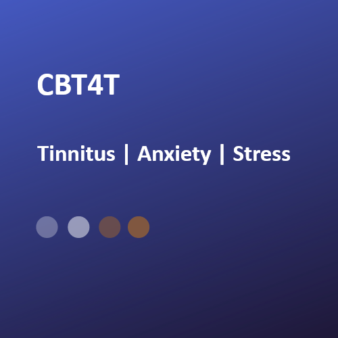Treating Tinnitus Trauma
I have been working with people distressed by tinnitus for 30 years now - with what for many of them was devastating tinnitus. They experience layer upon layer of additional issues (as in the Autonomic Ladder explanation) surrounding “the noises in their ears/head” that has given rise to something much more complex. They rarely glimpse the BLUE ZONE, spending most of their time in the RED and GREY zones
Compare that complexity with those that hear a tinnitus noise but it doesn’t trouble them, get on with their lives, rarely NOTICE it and even when their attention to it gets caught in their mind, nothing is holding it there so they simply forget it again. The research shows that this is true for 85% of the 1 in 8 people that have tinnitus.
The remaining 15% are those with the complex layers, living in the RED and GREY zones.
Tinnitus Trauma
- By its very nature, tinnitus can disrupt people's internal systems. And when THAT happens, it becomes very easy for some patients to fall into near-constant cycles of reactivity, hypervigilance, and fear.
- That’s why it is critical for practitioners to know how to employ the kind of interventions that can help clients learn how to self-regulate and know they are working with someone traumatised. This is NOT work for Audiologists to undertake, however well meaning they may be.
- Treating trauma USED TO BE ABOUT helping people find a way to tolerate what they’re feeling, what they’re experiencing in their body, about people finding a way of getting along with their own internal systems. Now, there are much improved EFFECTIVE ways of treating trauma, including tinnitus-triggered trauma.
- When a person experiences tinnitus-triggered trauma, their body has rapidly registered an initial shock response from the threat of the experience. That shock becomes stored in the body, and if it is not effectively processed, it will continue to wreak havoc through unexplained symptoms and an inability to fully process the emotions of the traumatic memory. Attempting to treat the emotions without first accessing and clearing the shock inhibits and even blocks recovery.
- So while it’s certainly true that tinnitus can be devastating, it doesn't have to be the way you define the rest of your life.
Tinnitus-trauma is real, and not as rare as some might believe. But treating tinnitus-related trauma is NOT about "changing how you think or what you think". Tinnitus-related trauma isn't even about "tinnitus", which is why "apps for tinnitus" keep people stuck, act as a reminder of and to the implicit memory held in the amygdala and hippocampus, and serve to reinforce people's fear when they don't DO anything to change the root cause - rather, they embed the triggering neural pathways throughout the brain and body deeper.
Of those starting the CBT for Tinnitus E-Programme, 40% have a Tinnitus Functional Index (TFI) in category 4 (54-72%) and 40% have a TFI in category 5 (73-100%). Around 90% of those with a starting TFI in category 5 show clear indications of trauma-related tinnitus, and around 70% of those with a starting TFI in category 4 also show clear indications of trauma-related tinnitus. The IMPACT STATEMENTS IS1, IS2 and IS3 along with the TFI, ASQ and PSS carry that information.
When people use the CBT for Tinnitus E-Programme, and repeat the Impact Statements IS2 and IS3, and their TFI, ASQ and PSS later in the process, the changes are profound - see Outcomes These Outcomes publish only the TFI changes. It would not be ethical to publish Impact Statements, but peoples reviews are published.
Those distressed by tinnitus (but not with tinnitus-related trauma) are still in and out of dysregulation often, just in their everyday lives (see Autonomic Ladder), but when we get stuck, it feels like there's no way out - just like "John" in scenario 3 of the Autonomic Ladder.
The Amygdala sections (pre-Stage One of the course) are so important to understand, they are in their own section making them easy to refer back to at any time.
